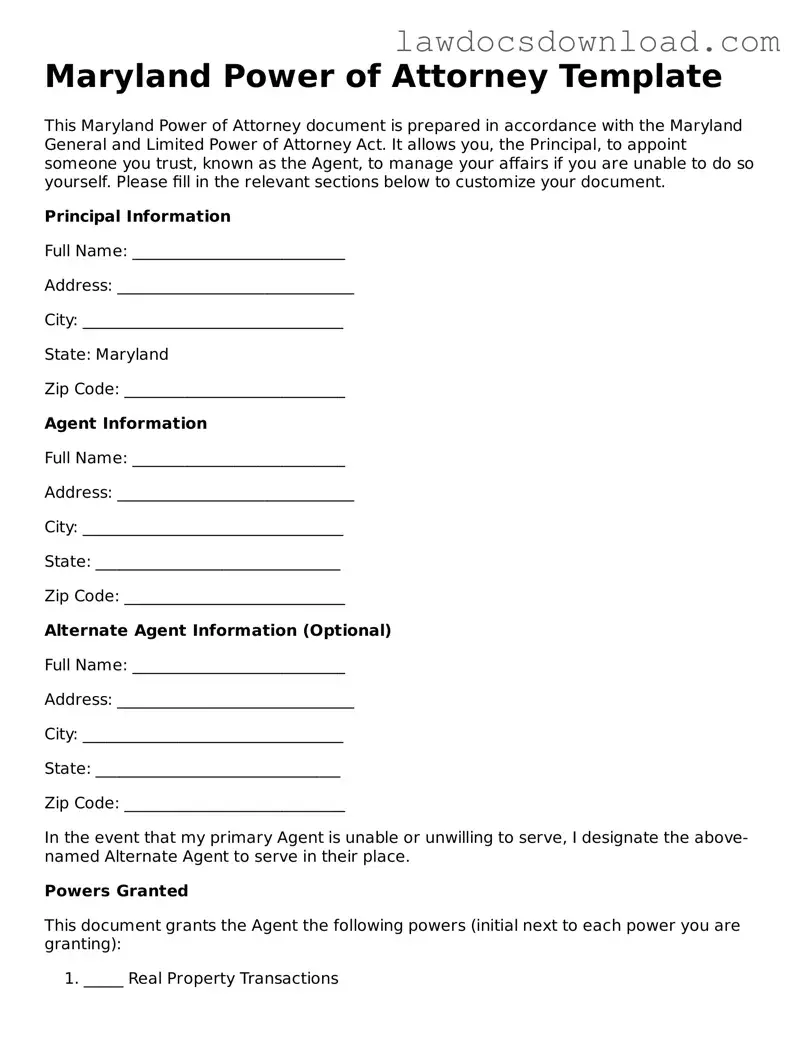Maryland Power of Attorney Template
This Maryland Power of Attorney document is prepared in accordance with the Maryland General and Limited Power of Attorney Act. It allows you, the Principal, to appoint someone you trust, known as the Agent, to manage your affairs if you are unable to do so yourself. Please fill in the relevant sections below to customize your document.
Principal Information
Full Name: ___________________________
Address: ______________________________
City: _________________________________
State: Maryland
Zip Code: ____________________________
Agent Information
Full Name: ___________________________
Address: ______________________________
City: _________________________________
State: _______________________________
Zip Code: ____________________________
Alternate Agent Information (Optional)
Full Name: ___________________________
Address: ______________________________
City: _________________________________
State: _______________________________
Zip Code: ____________________________
In the event that my primary Agent is unable or unwilling to serve, I designate the above-named Alternate Agent to serve in their place.
Powers Granted
This document grants the Agent the following powers (initial next to each power you are granting):
- _____ Real Property Transactions
- _____ Tangible Personal Property Transactions
- _____ Stock and Bond Transactions
- _____ Commodity and Option Transactions
- _____ Banking and Financial Service
- _____ Business Operations
- _____ Insurance and Annuity Transactions
- _____ Estate, Trust, and other Beneficiary Transactions
- _____ Claims and Litigation
- _____ Personal and Family Maintenance
- _____ Benefits from Social Security, Medicare, Medicaid, or other governmental programs, or civil or military service
- _____ Retirement Plan Transactions
- _____ Tax Matters
Effective Date and Duration
Effective Date of Power of Attorney: __________________ (MM/DD/YYYY)
This Power of Attorney shall become effective immediately upon the signing of this document and will continue:
- Until I revoke it in writing.
- If I have elected a Durable Power of Attorney, it will remain in effect if I become disabled or incapacitated.
Signature
By signing below, I affirm that I understand the nature and scope of the powers granted in this document. I execute this document voluntarily and without any duress or undue influence.
Principal’s Signature: _______________________________ Date: ___________
Agent's Signature: _________________________________ Date: ___________
Alternate Agent's Signature (if applicable): __________________ Date: ___________
Notarization
This document was acknowledged before me on (date) ____________ by (names of the individuals) _______________________________________________.
Notary Public: _______________________________
My Commission Expires: _______________________

